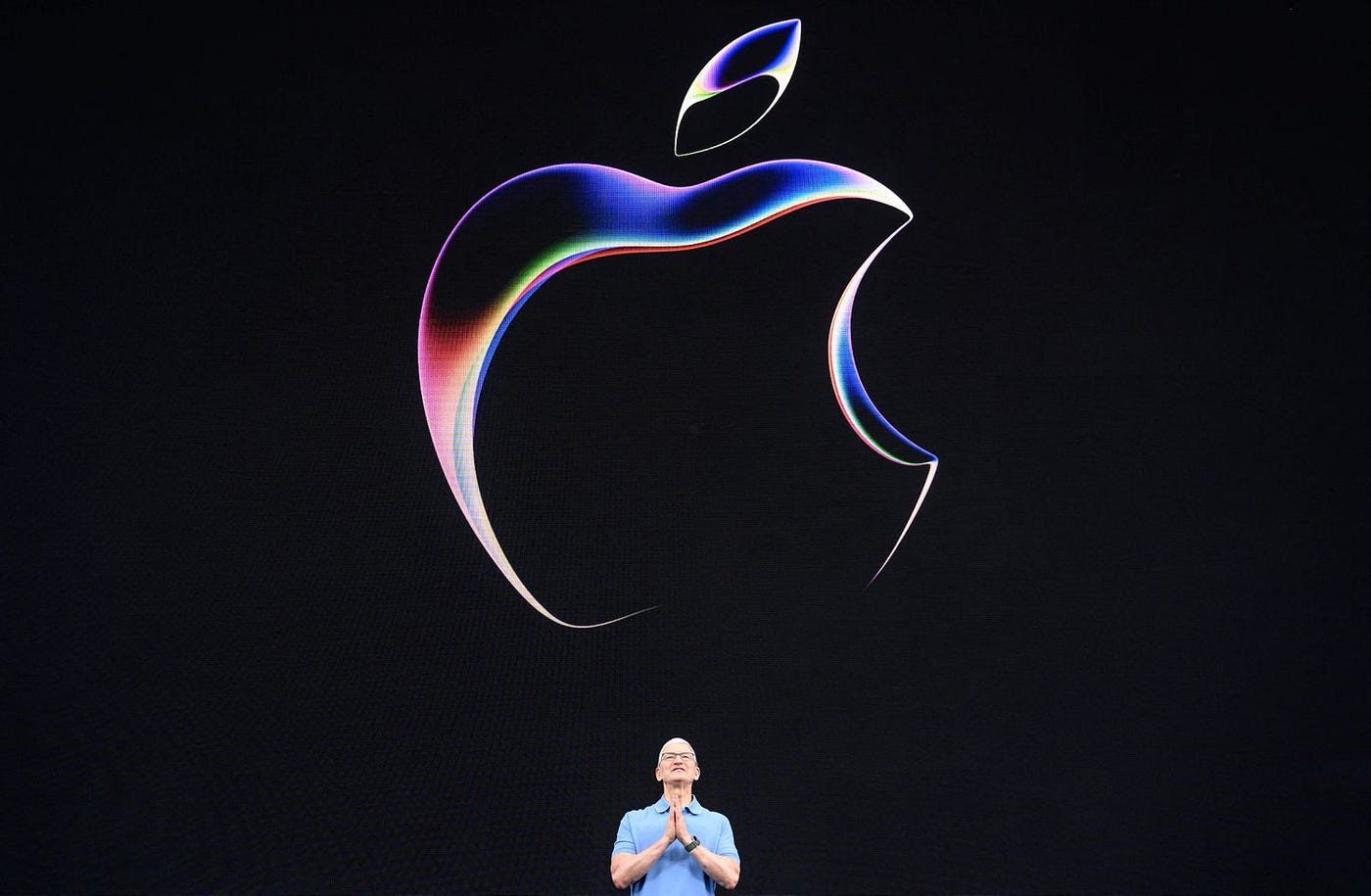The race for artificial intelligence (AI) supremacy is heating up, and tech giants are pulling out all the stops. Apple, known for its innovative hardware and user-centric approach, is making significant strides in the AI arena. Following its recent partnership with OpenAI, reports suggest Apple is also in talks with Meta (formerly Facebook) for potential collaboration. Let’s delve deeper into this development, explore the implications, and examine Apple’s strategic approach to AI integration.

Apple and OpenAI: A Match Made in AI Heaven?
Earlier this month, Apple announced a partnership with OpenAI, the research lab behind the popular AI language model ChatGPT. This collaboration paves the way for integrating ChatGPT features into an enhanced version of Siri, Apple’s virtual assistant. The integration could potentially bring functionalities like improved writing suggestions and a more natural conversational flow to Siri. While details remain under wraps, this partnership indicates Apple’s commitment to elevating its AI capabilities.
Apple and Meta: A Potential Powerhouse Alliance?
Adding another twist to the story, The Wall Street Journal reports that Apple is also exploring a partnership with Meta. This collaboration, if it materializes, could unlock new possibilities for AI integration within Apple’s ecosystem. While details are scarce, the potential benefits of such a deal are intriguing.
Benefits of a Potential Apple-Meta Partnership:
- Diversification of Partnerships: Integrating AI features from both OpenAI and Meta would diversify Apple’s AI landscape, reducing reliance on a single source.
- Validation for Meta’s AI Technology: Collaboration with Apple would validate Meta’s generative AI technology and potentially open doors to wider adoption.
- Distribution Opportunities for AI Partners: According to the Journal, Apple might not offer financial compensation but could provide distribution opportunities for its AI partners. This could benefit Meta by allowing them to leverage Apple’s vast user base and market premium subscriptions for their AI services.
Apple’s Strategic Approach to AI: Practicality Over Flash
Analysts suggest that Apple’s current AI strategy appears more focused on practicality than revolutionary innovation. Instead of chasing ground-breaking features, Apple seems to be integrating AI subtly into existing functionalities. Here are some examples:
- Writing Suggestions: AI-powered writing suggestions might enhance the user experience within email, notes, and other writing applications.
- Custom Emojis: AI could personalize and create custom emojis based on user preferences or facial expressions.
- Apple Intelligence: Apple’s upcoming suite of AI features, “Apple Intelligence,” announced for iOS 18, iPadOS 18, and macOS Sequoia, focuses on enhancing writing tools, summarizing information, and improving user experience through context awareness.
Privacy Concerns and Regulatory Hurdles
The integration of powerful AI features raises concerns about user privacy and data security. Apple has emphasized that it will seek user permission before sharing any data with collaborating AI platforms like ChatGPT. This approach, likely to be extended to any potential AI partnerships with Meta, aims to address these concerns and ensure user trust.
However, regulatory hurdles might create additional challenges for Apple’s AI ambitions. Notably, the European Union’s Digital Markets Act (DMA) aims to promote competition in digital markets. Under the DMA, Apple plans to withhold access to its new “Apple Intelligence” features within the EU due to concerns that interoperability requirements could compromise user privacy and data security. This highlights the delicate balancing act Apple needs to perform between embracing AI progress and navigating complex regulatory landscapes.
Frequently Asked Questions:
Q: Why is Apple partnering with AI companies like OpenAI and potentially Meta?
A: Apple aims to enhance its AI capabilities by integrating features from these research labs into its products. This could lead to functionalities like improved writing suggestions in Siri, a more natural conversational flow, and potentially new AI-powered features within Apple’s ecosystem.
Q: How will Apple ensure user privacy when integrating AI features?
A: Apple has emphasized that it will seek user permission before sharing any data with collaborating AI platforms. This approach aims to address privacy concerns and ensure user trust.
Q: How will the European Union’s Digital Markets Act impact Apple’s AI ambitions?
A: Under the DMA, Apple plans to withhold access to its new “Apple Intelligence” features within the EU due to concerns about interoperability requirements potentially compromising user privacy and data security. This highlights the regulatory challenges Apple faces in its AI endeavors.




